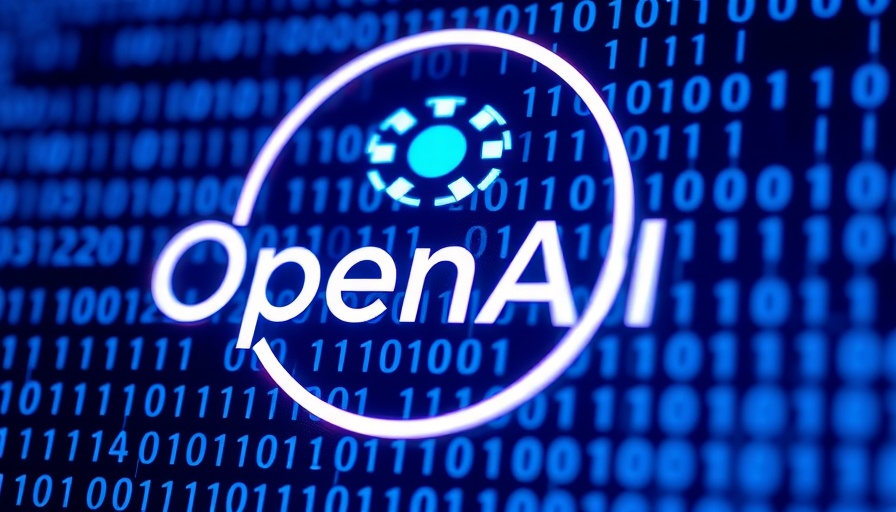
The Controversy Surrounding OpenAI's Data Sources
In an increasingly digital world, the ethics of artificial intelligence training have come under intense scrutiny. A recently published paper brings to light the serious accusations against OpenAI: that the company may have trained its AI models, particularly the advanced GPT-4o, using content from paywalled O’Reilly books without proper licensing. This revelation raises critical questions about data usage and copyright in technology advancements.
How AI Models Learn
At the core of AI functionality lies its ability to recognize patterns and generate content based on vast datasets derived from books, articles, movies, and more. These models operate as complex predictive systems, often learning from both openly available resources and, potentially, proprietary content. The new findings suggest that as OpenAI pushed towards creating more sophisticated models, they may have ventured into ethically gray areas by utilizing copyrighted material.
Understanding the DE-COP Method
The authors of the paper employed an innovative method known as DE-COP, which efficiently detects the presence of copyrighted content within the data pools used to train language models. This test distinguishes between human-written texts and AI-generated ones, providing insights into model familiarity with specific literature. The research notably revealed that GPT-4o showed recognition of more paywalled O’Reilly content than its predecessor, GPT-3.5 Turbo, pointing to possible reliance on unlicensed materials.
The Challenges of Defining Copyright in AI Training
This situation highlights the blurred lines of intellectual property rights in the realm of AI. As the tech industry evolves, the question of ethics surrounding AI training datasets becomes increasingly pressing. With the potential for misappropriating content, users and tech developers alike are pondering: how do we ensure equitable treatment of original authors? The ongoing dialogue is essential as industries converge on innovative technologies.
OpenAI's Response: Transparency and Allegations
While OpenAI has not yet issued a formal response regarding these accusations, transparency in AI practices is crucial. Previous instances have shown that the AI community must navigate copyright laws alongside technological advancements. Such scrutiny not only involves legal perspectives but also ethical considerations about creators’ rights. OpenAI's models must balance innovation with respect for intellectual property in the quest for progress.
Broader Implications for the Tech Industry
What does this mean for the tech ecosystem as a whole? As AI continues to reshape industries—from education to entertainment—the focus on ethical practices is paramount. Companies should prioritize ethical sourcing of content while being proactive in addressing copyright issues to maintain trust with stakeholders, consumers, and creators alike.
Future Trends in AI and Copyright Compliance
As debates about AI and copyright gain momentum, the tech industry may be on the verge of rebranding how information and content are treated. Future models could favor openly licensed data, sparking a new era of compliance and trustworthiness in AI development. Continued advocacy for copyrights within AI training data may lead to the establishment of clearer guidelines, benefiting both creators and tech developers.
Call to Action
As AI technology continues to advance rapidly, it is essential for developers and consumers to engage in discussions about ethical data use and copyright issues. Staying informed on the latest tech news will enable them to advocate for a responsible future in technology. Join the conversation in your community and remain vigilant as developments unfold!
 Add Row
Add Row  Add
Add 



Write A Comment